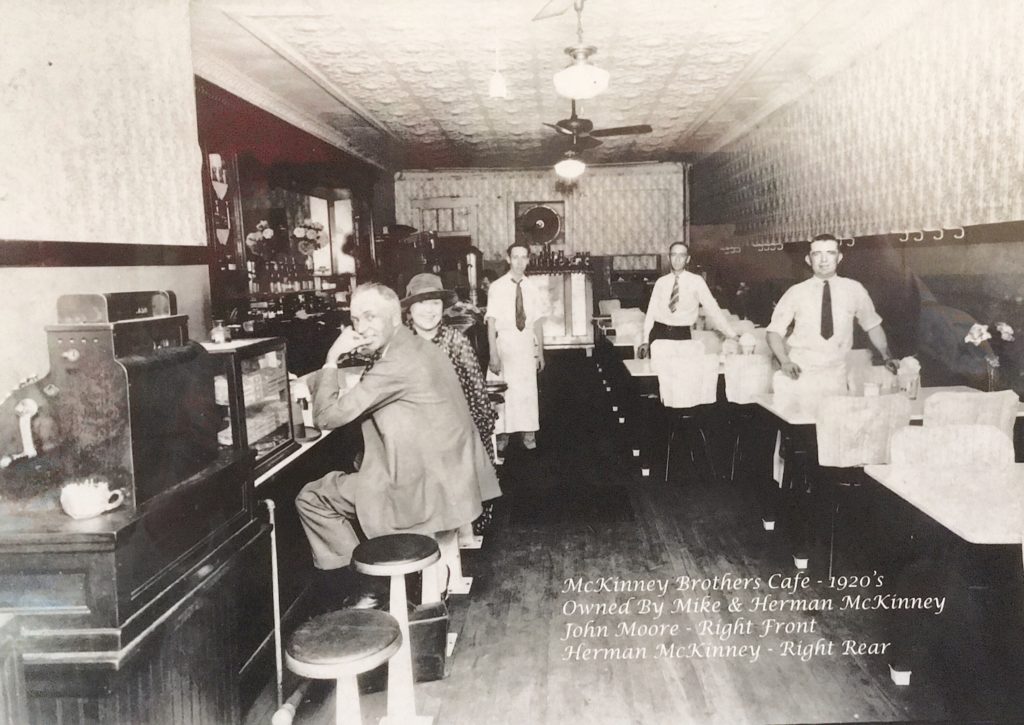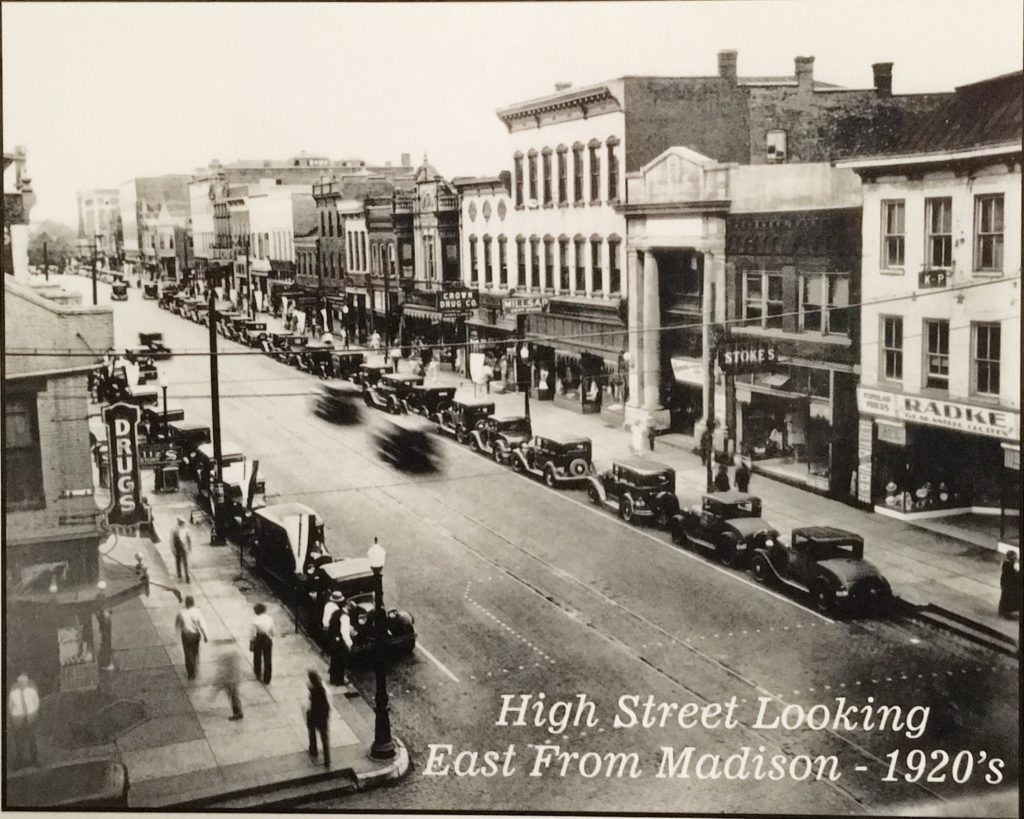
Spotted these at the Towne Grill


Spotted these at the Towne Grill
I’ve really never been either so I’m talking about something here with which I have no first-hand experience. No points to make here, just thinking out loud.
In the last week I have seen three men, standing at intersections, holding cardboard signs that read: Struggling and Hungry. Two of these were in Columbia, MO (within a quarter mile of each other) and the third here in Jefferson City, MO. I’ll come back to the signs in a minute.
First, what do we call what these men were doing? “Begging” seems demeaning but “panhandling” seems euphemistic. “Homeless” seems to be the accepted term but we don’t know if the person has a home or not. But let’s go with homeless.
Second question: On what basis does someone decide to give/not give money to a homeless person? Physical appearance? Do they look hungry? Something in their expression or dress? Their body language? Do they have a dog? The answer is different for everyone of course and can change from encounter to encounter.
Is a homeless person aware of such considerations? Do they smile and make eye contact with motorists or have they found that to be a turn-off? Or a positive? Did they consciously bring their dog because they know dog lovers will be moved by the sight of the pooch? Have they learned that walking down the line of cars at a stop light can appear “pushy?”
Or perhaps by the time someone finds themselves on the side of highway holding a sign such calculations have given way to desperation. The answer is probably “all of the above.” Some are undoubtedly lazy and could get a job and some are at the end of their rope.
Back to the signs.
Do some signs work better than others? Would clean, printed sign say this person is just looking for a hand-out, while a ragged piece of cardboard with a scrawled plea touch a heart? And what about the “Struggling and Hungry” wording? Just coincidence? Or did someone discover (trial and error?) that phrase worked better than “Please help?” And is there any communication between sign-makers? Standing in line at McD’s perhaps? Do the homeless have smartphones and would that automatically kill a generous impulse? Should it?
I usually give if I can do so without endangering the person by making them dash between cars to get to my lane. And, yes, I usually give if there’s a dog (“Buy some food for the pup”). And I’m turned off when I see two people working an intersection. Do they see this a boring job and it’s better to have a pal to pass the time?

“People think they follow advice but they don’t. Humans are only capable of receiving information. They create their own advice. If you seek to influence someone, don’t waste time giving advice. You can change only what people know, not what they do.” — God’s Debris
For most of the 40 years of my working life, I was what we used to call “middle management.” The person at the top decided what was to be done and my job was to get the people “under” me to do it. I can say unequivocally I never persuaded anyone to do something they didn’t want to do. Never. Ever. Which is a pretty good argument for the irrelevance of middle managers. (Or that I should not have been one)
Which reminds me of another favorite. I won’t put this in quote because I have no idea who said it but it has stuck with me for years. Unless you hear the following words, never offer an opinion: What do you think, Steve?
And you know what? I think I can count on one hand how many times I’ve heard that question in my life.
 You know that feeling where you say a word so often that it stops — for a few seconds — having any meaning? It’s just a sound your lips and tongue make? I’ll bet there’s a word for that but I don’t know what it is.
You know that feeling where you say a word so often that it stops — for a few seconds — having any meaning? It’s just a sound your lips and tongue make? I’ll bet there’s a word for that but I don’t know what it is.
I’ve been thinking about the word “computer.” I use that word a lot. But it really doesn’t have much meaning (for me) any more. The earliest computers were big old room-size monsters that… computed numbers. Add, subtract, multiply, divide (and probably some other math stuff). So we called the machines computers.
And I guess there are lot of folks still computing on their computers but doesn’t it seem like there could be a better name? We’ve got “desktop” and “laptop” but those are more about where and how we use the machine.
Our phones are computers now but I’m not all that happy with the term “smart phone.” Better than “device” but still not great. Shoot, “digital assistant” was a better term than most of these but that won’t be back. And why didn’t “communicator” catch on? Good enough for the Star Trek crew.
In a few weeks I’ll be talking to Siri via AirPods. And god only knows what we’ll call the glasses we’ll one day be wearing.
 Since retiring, I’m occasionally asked if I’d consider working part-time. Uh, no. But this afternoon I thought of a job that I might find interesting. If such a job exists. If some company/business/service was doing one of those “is it human or is it a bot?” things, that might be fun. Sort of a half-assed Turing Test kind of thing? But I’d want total freedom in my responses.
Since retiring, I’m occasionally asked if I’d consider working part-time. Uh, no. But this afternoon I thought of a job that I might find interesting. If such a job exists. If some company/business/service was doing one of those “is it human or is it a bot?” things, that might be fun. Sort of a half-assed Turing Test kind of thing? But I’d want total freedom in my responses.
Q: You’re in a desert, walking along in the sand when all of a sudden you look down and see a…
Me: Did you think Ernest Borgnine was better in Airwolf or Escape from New York?
Yeah, I think I might do that for an hour a day. My friend David Brazeal had a similar gig for a while. He was the human behind the Barrel Bob Twitter account for the Missouri Department of Transportation. I think he lost the account when the suits couldn’t handle his insanely humorous tweets.
The fortress-like Kowloon Walled City of Hong Kong was demolished in the early 1990s, but a German documentary crew braved the sprawl in 1989 and captured amazing footage from inside this sunlight-less patchwork metropolis.
“While used denim is generally sold at a discount, these particular jeans (The Onomichi Denim Project) actually get about twice as a expensive after being worn by somebody almost daily, for at least a year. […] They hand-pick the wearers from the local community and closely monitor their transformation over the course of one year. Wearers rotate through two pairs of jeans that they promise to wear almost every day for the entire period, and bring them to the shop every week, to be laundered at a special denim processing facility, which ensures that every pair retains the evidence of each wearer’s life and work. […] When the pre-wearing period ends, each pair of jeans is washed according to color, hang-dried or tumbled, checked for individuality, tagged with detailed descriptions and put on sale at the minimalist Onomichi Denim Project boutique for anywhere between ¥25,000 ($215) and ¥48,000 (415). That’s about twice as they usually cost when new, but these are not just any jeans, they are cultural artifacts.”
Yesterday I forced myself to toss the Levis below. The denim is so thin and soft you can poke your finger through the fabric. I keep thinking they’ll dissolve the next time I run them through the wash. Easily 10 or 15 years old. I think we’ll keep them a while longer. They are cultural artifacts, after all.


The two photos below are hanging (with 8 or 10 others) on the wall of a little cafe in Jefferson City, MO. I’ve noticed them before and recall thinking I’d like to scan them but they’re framed and (probably) bolted to the wall. This morning I remembered the PhotoScan app I recently added decided to give it a try. No bad. No glare from the glass. I’ll get some more when the place is less busy.


High Street is where the Coffee Zone is located (not on the block shown). The interior shot is the cafe.